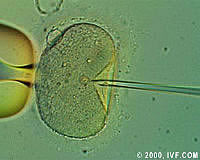EPO closes theoretical human cloning loophole
The European Patent Office (EPO) announced on 24 July that it has closed a patenting loophole which had meant, in theory, it was possible to clone human beings. Several European governments complained after a patent granted to Edinburgh University, UK, gave permission to change mammal cells to create a transgenic animal but did not specifically rule out humans. The omission initially went unnoticed when the patent was granted in 1999 to Edinburgh University and Australian biotech firm Stem Cell Sciences, but a few months later EPO officials confirmed they had made a mistake. Although neither Edinburgh University nor Stem Cell Sciences intended to use the patent to clone humans, concern was raised by the theoretical possibilities which the patent allowed for. For procedural reasons, the EPO had to wait until formal complaints had been filed before correcting the patent. The German, Italian and Dutch governments complained and the matter was also raised in the European Parliament.



